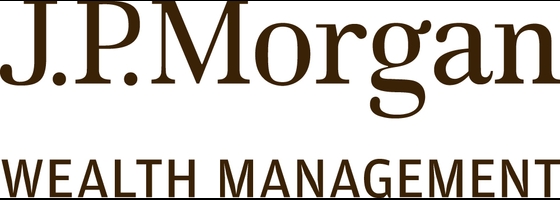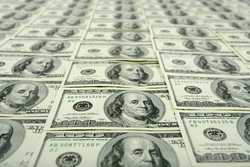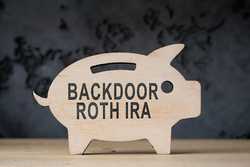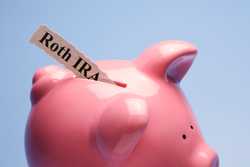- Low $1 minimum investment.
- Reasonable expense ratio.
- 24/7 customer service.
Best Money Market Funds in December 2024

Our evaluations and opinions are not influenced by our advertising relationships, but we may earn a commission from our partners’ links. This content is created by TIME Stamped, under TIME’s direction and produced in accordance with TIME’s editorial guidelines and overseen by TIME’s editorial staff. Learn more about it.
Money market funds are low-risk mutual funds that invest in cash, cash equivalents, and short-term debt. Their yields are currently in the 5% range, making them an excellent place to park excess cash. However, not all money market funds are created equal.
We reviewed dozens of large brokerage firms and fund companies to dig up money market funds that offer high yields, reasonable expense ratios, and low investment minimums to help narrow your choices.
Discount brokerage Charles Schwab’s Value Advantage Money Fund (SWVVX) has delivered an attractive 5.25% 1-year yield with no minimum investment amount. The low minimum and Schwab’s 24/7 customer service make this fund accessible to most investors and ideal for existing Schwab customers.
The Value Advantage Fund invests in high-credit-rated commercial paper, certificates of deposit (CDs), and U.S. Government agency repurchase agreements. It has a 0.35% expense ratio and more than $250 billion in assets under management.
The Fidelity Government Money Market Fund returned 5.01% over the past year and has a minimum investment requirement of just $1. This fund is ideal for Fidelity Investments account holders who want a place to park cash or generate a moderate level of income.
The Fidelity Money Market Fund invests in various U.S. Government agency repurchase agreements, U.S. Treasuries, and other low-risk investments. It charges a 0.42% expense ratio and has over $300 billion in assets under management.
The Invesco Liquid Assets Portfolio had the highest 1-year yield on our list, at 5.46%. The minimum investment is $1,000, making it an accessible fund for most investors.
This money market fund consists of commercial paper, CDs, master and promissory notes, municipal securities, and repurchase agreements. It has a low 0.18% expense ratio and $1.5 billion in assets under management.
JPMorgan’s Prime Money Market Fund invests in high-quality commercial paper, demand notes, CDs, and U.S. repos. It requires a $1,000 minimum investment and boasts an attractive 5.16% 1-year yield ending March 31, 2024.
The fund charges a 0.50% expense ratio—on the high side—and has over $80 billion in assets under management.
Index fund giant Vanguard’s Federal Money Market Fund boasts a low 0.11% expense ratio and a 5.32% 1-year yield. There is a higher minimum than other funds on our list, requiring $3,000 to start investing in this fund.
The Federal Money Market Fund’s investment holdings are almost evenly split between U.S. government debt obligations, U.S. Treasuries, and U.S. government repurchase agreements. The fund has $296 billion in assets under management.
Vanguard's Treasury Money Market Fund offers very low-cost access to U.S. Treasuries. At the end of March 2024, the fund had a 1-year yield of 5.29% and invested in short-duration U.S. Treasuries.
The fund composition consists of over 98% U.S. Treasuries with an average duration of under 50 days. This makes the fund a secure way to stash cash in government-backed securities with a high yield. The fund has a 0.09% expense ratio and more than $70 billion in assets under management.
The Schwab Municipal Money Fund invests in municipal debt securities, offering federal tax-free income for investors. It has a reasonable 3.13% 1-year yield, solid for a tax-free investment fund.
The fund, which has $3.8 billion in assets under management, invests in tax-exempt municipal commercial paper, bonds, and other debt obligations. It charges a 0.35% expense ratio.
| Fund | Best for | 1-Yr Yield* | Expense ratio | Minimum | Ticker Symbol |
|---|---|---|---|---|---|
Schwab Value Advantage Money Fund | Low minimum investment | 5.25% | 0.35% | $1 | SWVXX |
Fidelity Government Money Market Fund | Fidelity account holders | 5.01% | 0.42% | $1 | SPAXX |
Invesco Liquid Assets Portfolio | High yield | 5.46% | 0.18% | $1,000 | LAPXX |
JPMorgan Prime Money Market Fund | JPMorgan account holders | 5.16% | 0.50% | $1,000 | VMVXX |
Vanguard Federal Money Market Fund | Low expense ratio | 5.32% | 0.11% | $3,000 | VMFXX |
Vanguard Treasury Money Market Fund | U.S. Treasuries with high yield | 5.29% | 0.09% | $3,000 | VUSXX |
Schwab Municipal Money Fund | Federal tax-free income | 3.13% | 0.35% | $1 | SWTXX |
*Average 1-Year yield as of March 31, 2024
To find the best money market mutual funds available, we started with data from the Office of Financial Research. We reviewed the top money market fund providers (by market capitalization) and found the funds with the highest 1-year yields and reasonable expense ratios.
We focused mainly on money market funds with substantial assets under management, as this helps to ensure liquidity and security should there be turmoil in the market. Most of the funds chosen have more than $100 billion in assets. We also avoided funds with high minimum investments—capping it at $3,000.
The best money market funds offer high yields, low expense ratios, and reasonable minimum investments for individual investors. Consider the following when conducting your own research to find a money market fund:
Your search for a quality money market fund should start by researching reputable brokers and fund managers, such as those on our list. It’s important only to use a financial institution you can trust.
You can use FINRA’s BrokerCheck tool to research the backgrounds and credentials of brokers and investment advisers.
Finding money market funds with competitive yields and low expense ratios will help you earn more interest. While some money market funds offer eye-popping returns, they may charge higher fees, lowering overall returns.
Money market funds typically have a minimum deposit requirement. While some offer $1 minimum deposits, some require up to $1,000 or more. Pick a fund with an affordable minimum so you can begin earning interest right away.
Money market funds offer a low-risk way to earn interest on your cash, but they aren’t the only way. The following money market fund alternatives offer high yields:
High-yield savings accounts offer high yields on cash deposits and are covered by FDIC insurance, which is not the case with money market funds.
Money market accounts also offer attractive deposit rates and may allow you to write checks or withdraw cash from ATMs. They are more liquid than money market funds, making money more accessible.
U.S. Treasury bills (T-Bills) are government debt fixed income securities that offer high yields when purchased and held to maturity. You can purchase T-Bills for four, eight, 13, 17, 26, and 52 weeks. Yields are on par with those of money market funds.
Certificates of deposit, or CDs, are timed deposit accounts that pay interest for locking up your funds for a specific duration. Terms typically range from one month to several years, with rates dependent on the term you choose. Putting your cash in CDs makes it less accessible than in money market funds, as you’ll usually pay a penalty for withdrawing money before maturity.
Money market funds are a type of mutual fund, while savings accounts are deposit accounts. Money market funds require purchasing shares of a mutual fund and can require a minimum investment. They are not FDIC-insured.
Most bank savings accounts are FDIC-insured, don’t have minimum deposit requirements (some do), and pay interest on cash deposits. You can withdraw money from a savings account at any time. To access your cash in a money market fund, you’ll have to sell shares of the fund and wait for the transaction to settle.
Both money market funds and money market accounts pay interest. However, money market funds are a type of mutual fund investment, while money market accounts are a type of deposit account. Money market funds require you to purchase shares of the fund, and money market accounts, on the other hand, are more similar to savings accounts.
A money market mutual fund is a type of mutual fund that invests in low-risk securities, such as cash, cash equivalents, and short-term debt securities. These funds are designed to offer a steady yield while avoiding the volatility and risk of the stock market.
Money market mutual funds are available through most major brokerage and fund management firms and may even be your default position in your cash account through your investment platform. And while there is very little risk of loss with these funds, in very volatile markets, there is a chance that the fund price could drop below $1 per share.
Money market funds are a type of mutual fund in which investors purchase shares. They are designed to trade at $1 per share while holding low-risk securities such as U.S. Treasuries, CDs, cash, and other debt securities.
Income earned from the underlying investments helps inform the interest rate paid on money market funds, which can fluctuate daily. The Federal Funds rate ultimately affects the performance of the underlying investments, so if the Federal Reserve decides to lower rates, the yield of the money market fund may drop as well.
Money market funds are a secure place to park cash and earn a competitive yield. Here are a few pros and cons to consider.
There are several types of money market funds, each with a different investment approach and tax treatment:
Government money market funds invest primarily in U.S. Treasuries and other government-backed debt securities. Some of the income generated from government money market funds is exempt from state and local taxes, depending on the underlying investments.
Prime money market funds invest in low-risk corporate debt securities, such as commercial paper and other non-Treasury assets. Income from these funds is fully taxable at the federal, state, and local levels.
Municipal money market funds invest in tax-exempt bonds and other debt securities. The income from these funds is exempt from federal income tax and sometimes state and local taxes too. The yield tends to be slightly lower than traditional money market funds, but the tax savings may be worth it to some investors.
Since the Federal Reserve consistently raised rates throughout 2022 and 2023, money market funds have begun to offer more attractive yields. As of March 2024, many money market funds have returned 1-year yields of over 5%.
While yields are currently high, the future of money market fund rates is unknown. Should inflation continue lowering to the Federal Reserve’s expected 2% rate, it may choose to lower the Federal Funds rate. This, in turn, may lower the yields on money market funds in the future. As with any mutual fund, money market returns are not guaranteed, and past performance is not an indicator of future returns.
Money market funds are available through various financial institutions, such as most major brokerage firms, fund companies, and banks. The Office of Financial Research mutual fund search tool allows you to view a list of the largest money market funds by market capitalization.
It’s important to review a money market fund’s total asset amount, expense ratio, and seven-day yield to gauge its potential performance.
Money market funds are ideal for parking cash and earning interest with little risk. The best money market funds offer a balance between a high yield and low expense ratio, allowing you to keep more of the interest earned. And while some risk is involved, money market funds are among the lowest-risk investments available.
Money market funds are typically actively managed, meaning a team chooses investments that the fund holds. The fees associated with fund management and operation are known as the “expense ratio.” There may also be trading fees and 12b-1 fees for market and distribution. Some funds charge a liquidity fee as well.
Yields for money market funds are calculated based on the maturity of the underlying investments and a 360-day bank year. The yield is the holding period yield multiplied by 360, divided by the number of days until maturity.
For example, if you purchase a money market fund for $1,000 and the holding period yield is $5 with 50 days until maturity, then the overall yield is 3.6% APY. When looking for money market fund yield, always look for the seven day yield for the best gauge of current yields.
There are different tax implications based on the type of money market fund you invest in, the holding period, and what type of account you use to buy and sell money market funds. For example, if you own money market funds within your individual retirement account (IRA), then there are no taxes assessed until you withdraw funds in retirement. But if you purchase a government money market fund within your taxable brokerage account, you will owe federal taxes on interest earned. It’s a good idea to meet with a licensed tax professional before investing in a money market fund or any investment if you’re worried about the tax implications.
The information presented here is created by TIME Stamped and overseen by TIME editorial staff. To learn more, see our About Us page.








